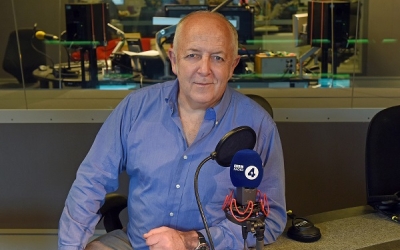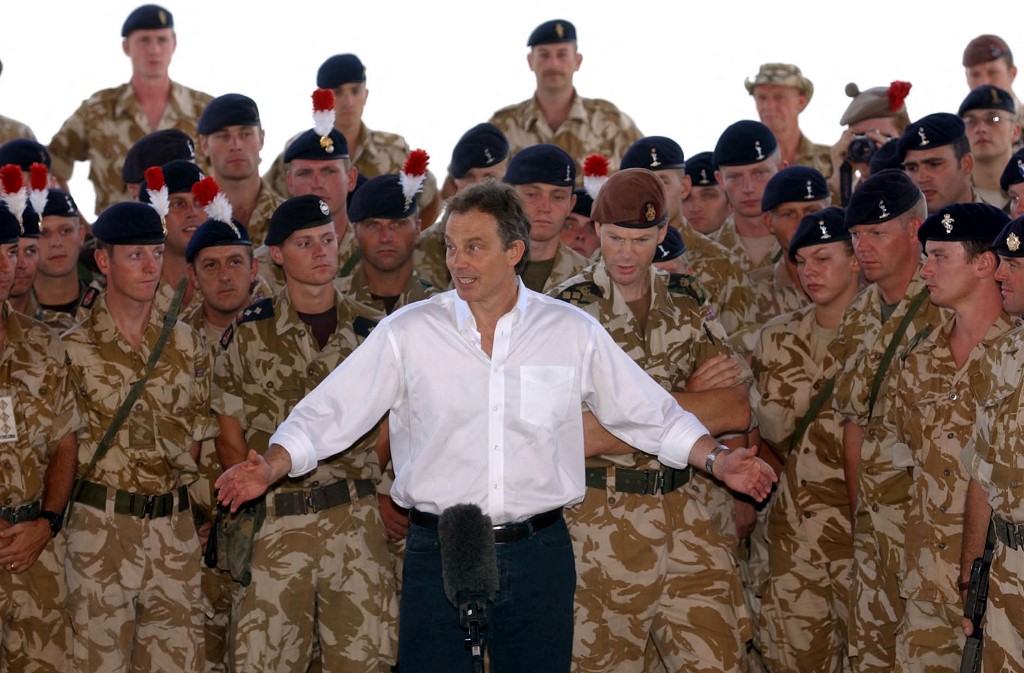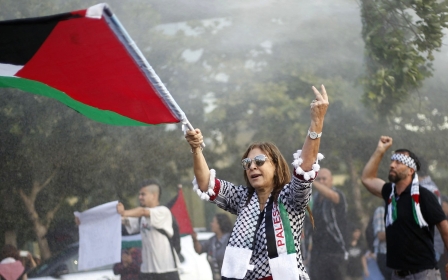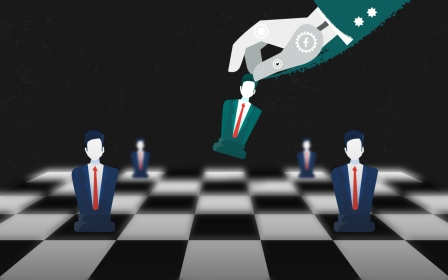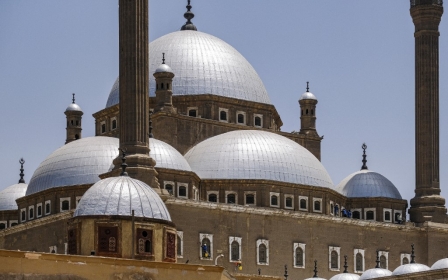Jeremy Bowen: A witness to the unmaking of the Middle East
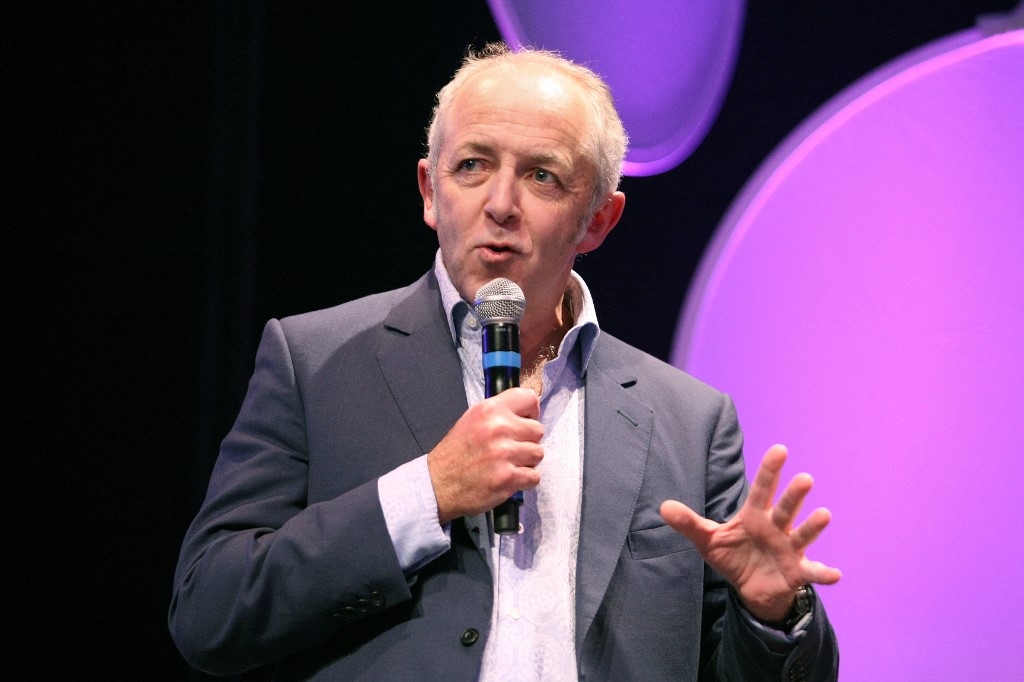
Trying to make sense of the Middle East, with all its myriad trends and crises, is a challenge beyond the scope of all but a few. Yet after 17 years as the BBC’s Middle East editor, Jeremy Bowen was up for the challenge.
The Making of the Modern Middle East: A Personal History is a summation of what he has seen and experienced as he moves on to become the BBC’s international editor. Bowen has been reporting from the region since 1989 and interviewing some of its most (in)famous leaders.
This is his fourth book on the region and brings together the stories that he covered and the trends he observed during that period. It is a heady blend of personal and professional, of meeting the elites and the ordinary people.
More often than not, he was on the front line, responsible for that first rough draft of history for one of the world’s largest and most influential broadcasters
Across 25 chapters, Bowen charts all the major events affecting the region. From the end of the Cold War, through to the 1991 Gulf War, to 9/11 and the Iraq war of 2003; from the "Arab Spring" and the horrors of Syria, to the rise and fall of the Islamic State (IS) group.
Bowen gives accounts of his time reporting from Afghanistan, Saudi Arabia, Iran, Iraq, Libya, Egypt, Yemen, Turkey, Lebanon, Syria and Israel-Palestine, among other places. More often than not, he was on the front line, responsible for that first rough draft of history for one of the world’s largest and most influential broadcasters.
New MEE newsletter: Jerusalem Dispatch
Sign up to get the latest insights and analysis on Israel-Palestine, alongside Turkey Unpacked and other MEE newsletters
In many ways it is a book about the unmaking of the modern Middle East. Regimes are challenged, dictators are overthrown, the counter-revolution hits back and extremist jihadist groups remain major threats.
Many countries are now wracked by war, crises and breakdown, including Iraq, Syria, Lebanon, Palestine, Libya and Yemen, with little sense as to what might emerge. The US has lost the supreme status in the region it enjoyed at the outset of Bowen’s reporting. The international community seems like a fiction.
Human frailties
Far too many take front-line reporting for granted. Bowen is candid about the challenges of reporting from conflict zones.
Often, war reporters are seen as adrenaline junkies anxious to be at the dangerous centre of it all. Bowen is not scared of owning up to his human frailties, admitting that, as he grew older, how fears for his life and having kids held him back from travelling.
He did not, for example, immediately dash out to cover the 2003 Iraq war. His moving account of how in 2000 retreating Israeli forces killed Abed Takkoush, his long-term fixer in south Lebanon, after they shelled the car Bowen had minutes before gotten out of, shows how fine the margins are between life and death in modern war reporting.
Bowen also received gunshot wounds to his leg while covering the coup in Egypt in 2013. The journalist has to find the balance between staying alive and telling the story.
One always fears that the reporting strictures of the BBC, dedicated to ever-stricter impartiality, would make such work rather tepid. You need not fear. Bowen packs a punch - fittingly, given how many wars, revolutions, massacres and atrocities he has witnessed in over 30 years of reporting from the region.
He is damning about Barack Obama’s failure to take action after the Syrian regime used chemical weapons in 2013. He listened to the British parliamentary vote on the issue with "incredulity".
Bowen criticises Donald Trump for claiming "incorrectly" that the Iran nuclear agreement of 2015 was a bad and dangerous deal. Both Trump and his son-in-law, Jared Kushner, get the full treatment for the lamentable so-called “deal of the century” on Israel-Palestine.
On Afghanistan, Bowen believes that the US should never have stayed there for as long as 20 years. He slams “unscrupulous leaders with more interest in power than religion” for whipping up sectarian hatreds.
In Basra, he challenges Tony Blair, the Anglo architect of the 2003 Iraq war, on where the weapons of mass destruction were. Blair walks away and refuses to answer. Bowen does not need to comment.
Corrupt, authoritarian governments
But perhaps his most scathing criticisms are saved for the ossified governments that still dominate the regional landscape. He describes them as corrupt, authoritarian but tenacious. He warns of future protests as the very causes of the 2010-2011 uprisings are still very much at play.
The book has plenty of first-hand encounters and anecdotes. Having been trying to get an interview with Bashar al-Assad ever since the outbreak of the Syria crisis, finally in 2013 he gets the call from the palace in Damascus.
His hopes duly raised, he makes his way there as instructed. He is greeted by an alarmed official. The urgent call was to ask: “Jeremy, what’s it like to be bombed by the Americans?”
Bowen had, of course, first-hand experience. All this was after the weapons attack on the Damascus suburb of Ghouta that killed 1,400 people, and the expectation was that Obama would order a strike. He does indeed get to interview Assad, but recalls how the president’s spin doctor had demanded that he would "‘help you select the best clips" of the interview.
He wonders whether both Libya's Muammar Gaddafi and Assad believed the rhetoric they spouted. He came away from meeting the Libyan leader with the strong feeling that he really did believe that the people were not demonstrating against him.
'Do no more harm'
Bowen also articulates carefully how interconnected the Middle East is; a “huge circuit board of connections".
He describes all the regional relationships and rivalries as the equivalent of “geopolitical Jenga”. How true. Events in Lebanon can trigger reactions in Syria, Iraq, Iran and Saudi Arabia.
It is perhaps one of the reasons why the region remains so misunderstood, something reading this book can certainly help reverse.
He concludes by highlighting correctly how we feel the shockwaves of Middle Eastern events all over the world, with his final message so simple, but so telling.
“Powerful states looking in from outside need to stop making it worse. Do no more harm," he writes. "Then try to make things better.”
The Making of the Modern Middle East: A Personal History, by Jeremy Bowen, is published by Picador.
The views expressed in this article belong to the author and do not necessarily reflect the editorial policy of Middle East Eye.
Middle East Eye delivers independent and unrivalled coverage and analysis of the Middle East, North Africa and beyond. To learn more about republishing this content and the associated fees, please fill out this form. More about MEE can be found here.



